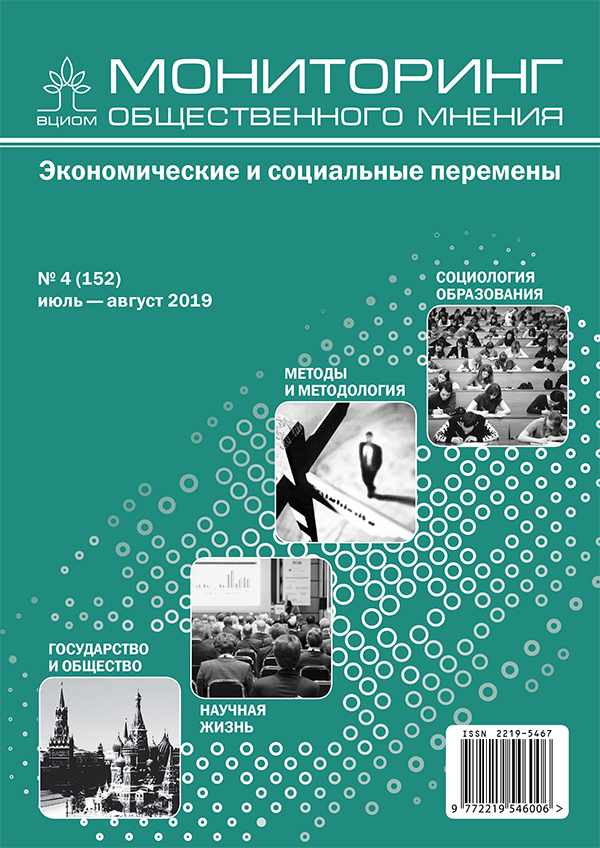Переход с PAPI на CAPI: опыт интервьюеров и характеристики, влияющие на их ожидания
DOI:
https://doi.org/10.14515/monitoring.2019.4.03Ключевые слова:
CAPI, PAPI, методы сбора данных, интервьюеры, ожидания интервьюеров, методология лонгитюдных обследованийАннотация
В работе представлен анализ оценки интервьюерами и супервайзерами пробного этапа перевода опроса, проводимого в рамках проекта «Российский мониторинг экономического положения и здоровья населения НИУ ВШЭ» (РМЭЗ НИУ ВШЭ), с методики бумажной анкеты (Pen and Pencil Interview — PAPI) на методику с использованием планшета (Computer Assisted Personal Interview — CAPI). В качестве данных для анализа послужил материал 13 интервью с полевыми интервьюерами и тремя интервью с супервайзерами, а также анкетирование 50 интервьюеров.
Основными преимуществами CAPI являются: значительное снижение стоимости проведения полевого этапа (особенно в долгосрочной перспективе), повышение скорости передачи и обработки данных, а также в некоторых случаях повышение качества данных (например, увеличение доли содержательных ответов на сензитивные вопросы — потребление алкоголя, доход). Тем не менее, переход к сбору данных с использованием планшетов связан также с некоторыми рисками. Среди основных недостатков CAPI можно выделить увеличение воспринимаемой длительности анкеты, потерю гибкости в процессе заполнения анкеты, психологический дискомфорт (страх), а также возрастающую когнитивную нагрузку на интервьюеров. Использование планшетов также было сопряжено с такими техническими трудностями, как медленная работа устройства, полная или частичная потеря данных, невозможность определения местоположения.
Кроме того, интервьюеры отмечают изменение коммуникативной составляющей интервью при опросе с использованием планшетов, что потенциально может оказывать значительное влияние на восприятие ситуации интервьюерами и респондентами и снижать удовлетворенность участием в проекте. С помощью моделирования структурными уравнениями на данных анкетирования 50 интервьюеров, отобранных для участия в пробном этапе, было выявлено, что влияние возраста на ожидания интервьюеров относительно CAPI полностью опосредуется их уверенностью пользования техническими средствами.
Благодарность. Статья подготовлена в рамках работы по гранту Российского научного фонда «Разработка интерактивной методической инфраструктуры для повышения качества данных лонгитюдных социологических исследований» (№ 17-78-20172).
Авторы статьи выражают благодарность за помощь в сборе данных и за ценные комментарии в процессе написания статьи И.Ф. Девятко и А.М. Мавлетовой.






